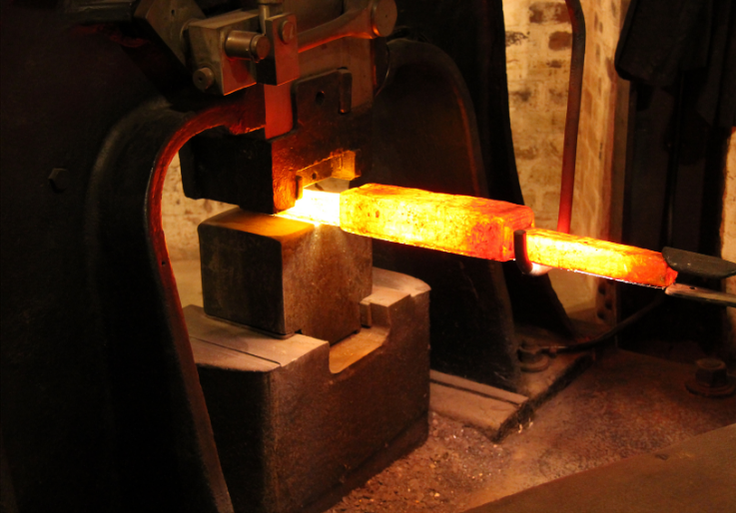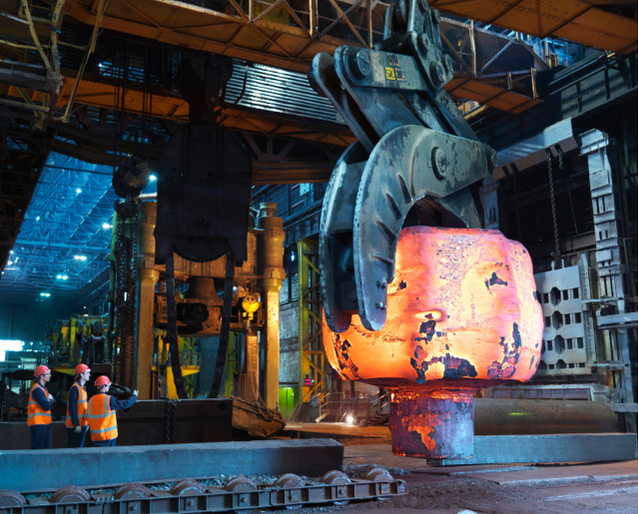
At Obersan Machinery Engineering Software Foreign Trade and Industry Limited Company, we are at your service to meet your hot forming needs with our comprehensive supplier network. We collaborate with firms proficient in hot forming to execute custom projects with high quality and precision. Whether your projects are special or medium-scale, we ensure they are completed to the highest quality standards.
Quality Assurance
Every part is meticulously inspected throughout the hot forming process and tested to meet customer requirements. Our quality control team verifies the dimensional tolerances and surface quality of the final products, providing approval before delivery.
The forging process is a manufacturing method in which a workpiece is transformed into high-strength parts by being hammered or compressed under high forces using various dies. It is typically performed by heating the metal to the desired temperature, although not always using the hot forging method; some processes are carried out using cold forging.
Parts produced through forging can vary greatly in size, shape, and complexity. The main advantages of the forging process include high strength, durability, and material efficiency. The advanced technologies and engineering expertise used in this process ensure that each part meets perfect quality standards. Forging offers an ideal solution for both simple and complex projects and is an indispensable manufacturing method for many applications in the industry.
We carry out forging processes for various materials, including steel, aluminum, stainless steel, titanium, and Inconel, offering turnkey solutions. With years of experience and a strong network of suppliers in the industry, we provide our customers with the highest quality forged parts.

By establishing strong partnerships with our domestic and international suppliers, we provide solutions tailored to the specific needs and specifications of our customers. In every project, we maintain the highest levels of engineering expertise and quality standards, prioritizing customer satisfaction and the value of collaboration.
At Obersan Machinery Engineering Software Foreign Trade and Industry Limited Company, we offer superior services in forged steel ring manufacturing using the most advanced ring rolling technology. This innovative process ensures high efficiency and excellent quality in the production of seamless steel rings. Our extensive supplier network can produce steel rings with outer diameters ranging from 400 mm to 8000 mm and heights up to 500 mm. These facilities are capable of producing rings in all grades of steel, including high and low carbon steels, chromium, nickel, copper, aluminum alloys, and many other special alloys.
Advantages of the Forged Ring (Ring Rolling) Process
High Strength: The material microstructure alignment that occurs during production provides high strength and durability.
Reduced Machining: Rings produced by ring rolling are close to the final dimensions of the finished part, requiring much less machining compared to solid plate material production. This reduces raw material usage and machining time, thus lowering production costs.
Material Variety: The rolling process can be applied to a variety of materials, offering a wide range of application possibilities.
Hot extrusion is a process in which billet materials are heated to a specific temperature and then shaped under high pressure through dies. The high temperature and force facilitate the plastic deformation of the material, allowing for the creation of complex cross-sectional profiles and precise tolerances. The hot extrusion method enables the production of a wide range of products. Complex sectional profiles and thick-walled tubes that cannot be produced by rolling can be achieved through extrusion, thereby reducing the need for machining processes.
Advantages of Extrusion
- High Precision: Extruded parts typically offer higher dimensional accuracy compared to rolled parts, enhancing the final product quality.
- Complex Profiles: The process allows for the creation of complex cross-sectional profiles and thick-walled tubes that are difficult to produce with other methods.
- Material Efficiency: By producing parts close to the final dimensions, extrusion minimizes the need for extensive machining, reducing material waste and production costs.
- Automation: Extrusion enables the production of parts in a single pass, simplifying and making automation more effective.
- Strength and Weight: Parts produced by extrusion are lighter yet stronger and more robust than those made by casting. This enhances the performance and durability of products while meeting weight reduction requirements.
- Reduced Finishing: Extruded products are more precise and accurate compared to cast parts, requiring less finishing and reducing overall costs.
Heat treatment processes are critically important both before and after hot forming operations to enhance the strength of materials and achieve a uniform microstructure with consistent hardness distribution. In this context, specific heat treatment processes are applied to steel and aluminum extrusion products based on the required strength values. In some cases, heat treatment is used to improve the mechanical properties of the profile. These heat treatments enhance the hardness, durability, and toughness of the profile, improving its performance.
